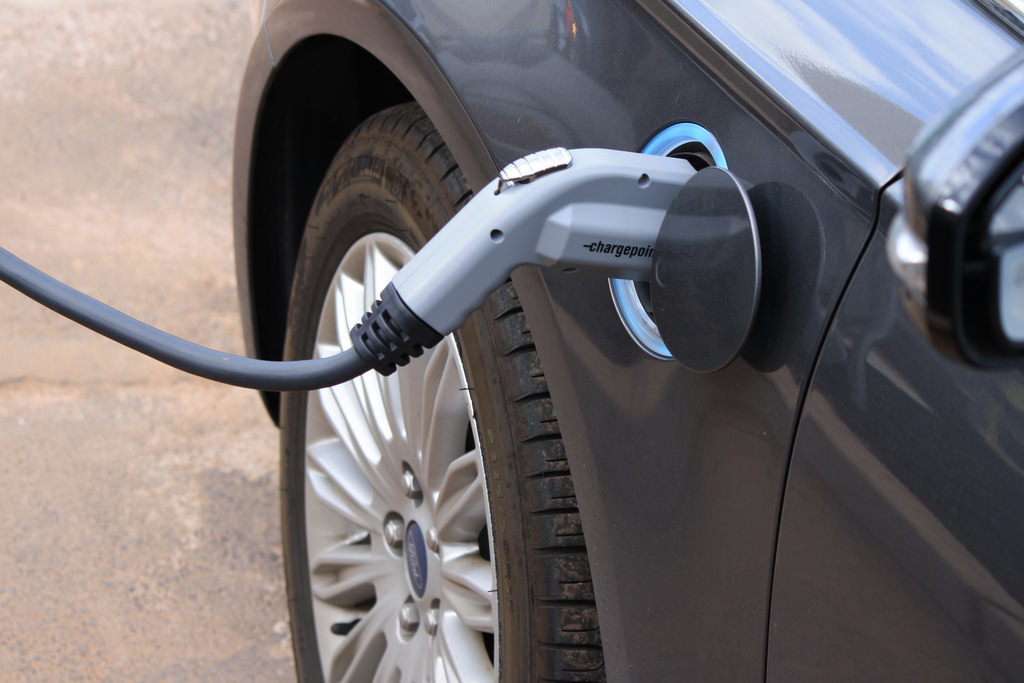In Vermont, transportation now contributes 45% of our total climate pollution. In order to meet our emissions reduction goals, we need to get an estimated 90,000 electric vehicles (EVs) on the road by 2025 – Vermont has slightly more than 3,500 today.[1] If we want to get serious about our climate commitments, we must focus on transportation.
That’s why VPIRG has supported measures to substantially increase our use of transportation alternatives like electric vehicles. Over the past two years, VPIRG successfully advocated that Vermont use its funds from the national Volkswagen settlement – nearly $19 million – to pilot an electric bus program and expand EV charging infrastructure.[2] Last year, we were part of a successful effort to push for additional incentives for low and moderate income Vermonters who purchase EVs, as well as low income Vermonters who purchase other used, high-efficiency vehicles.
In his budget address, Governor Scott proposed increasing funding for the State’s Electric Vehicle Incentive Program for FY2021 to $3 million dollars.[3] At the time, the Governor’s proposed budget for electric vehicles was a step up from what was passed by the legislature in 2019 – $2 million dollars for both an EV Incentive Program and a High Fuel Efficiency Incentives and Emissions Repair Program, though still woefully short of the need.[4] Although we have much work to do, VPIRG believes these programs are a modest but important step towards meeting our climate targets.
To find out more about the 2020 EV Incentive program – and other incentives offered by utilities – please click here. Wondering if you’re eligible for an EV Incentive? Check out this chart.
General EV Incentive Eligibility
| Vehicle Type | State of Vermont Incentive For $92,493 Household Income or Less
(160% of Median Income) |
Larger State of Vermont Incentive for Lower Income Households (Weatherization Eligible) |
| Plug-in Hybrid Electric Vehicle | $1,500 | $4,000 |
| All-Electric Vehicle | $2,500 | $5,000 |
Source: https://www.driveelectricvt.com/why-go-electric/purchase-incentives
Last week, the House Committees on Transportation and Appropriations passed the Governor’s proposed budget for the EV Incentive Program through the Transportation Fund and General Fund. With an increase in funding, these committees were able to add new measures to the existing program for FY21.[5] These new measures include:
- Incentives for all-electric and hybrid electric vehicles
- Education and outreach for dealers and customers
- EV sales incentives for dealers and salespeople
- EV charging infrastructure
This new program will not only incentivize folks to buy EVs, but it will also make sure that dealers and their staff understand these new vehicles as well, and are able to inform their customers on all the great reasons to go electric.
Although we’re happy to see both the Governor and the Legislature working together to increase our use of electrified transportation – these initiatives only scratch the surface of what needs to be done to put Vermont on track to hit our climate commitments.
If you want to learn more about what VPIRG is working on during the 2020 legislative session, please click here.
Update:
Due to recent developments regarding the COVID 19 pandemic, the funds passed out of the House Appropriations and Transportation Committees for the 2021 Electric Vehicle Incentive Program may not ultimately be available, or available at the same levels. Our staff are monitoring developments closely and will advocate for climate measures to be a key part of transportation-related recovery measures.
[1] Energy Action Network 2019 Annual Progress Report; https://www.driveelectricvt.com/why-go-electric/intro-to-electric-vehicles
[2] https://www.vpirg.org/issues/clean-energy/electrification-and-energy-efficiency/
[3] https://governor.vermont.gov/press-release/governor-phil-scott-delivers-annual-budget-address
[4] https://vtrans.vermont.gov/planning/projects-programs/vehicle-incentives
[5] Agency of Transportation, FY2021 Budget, January 2020

